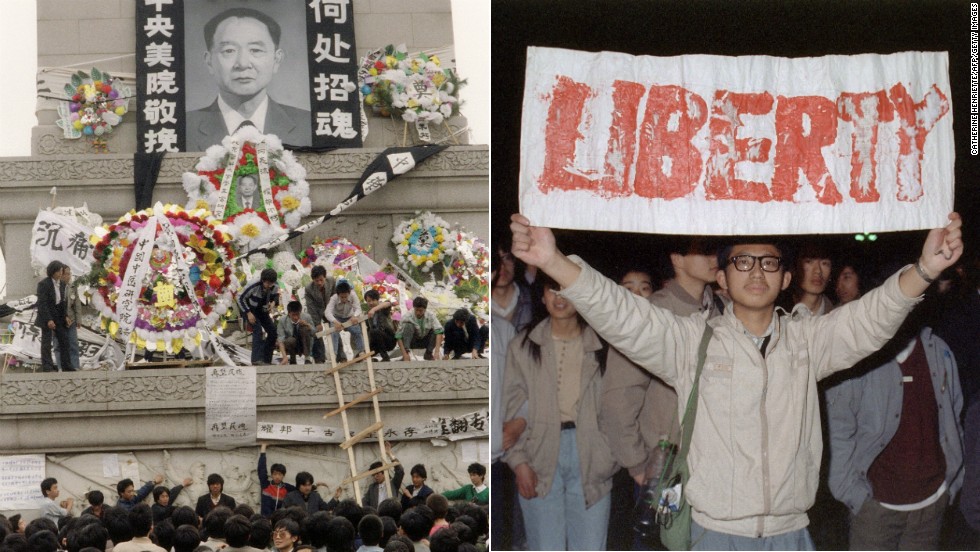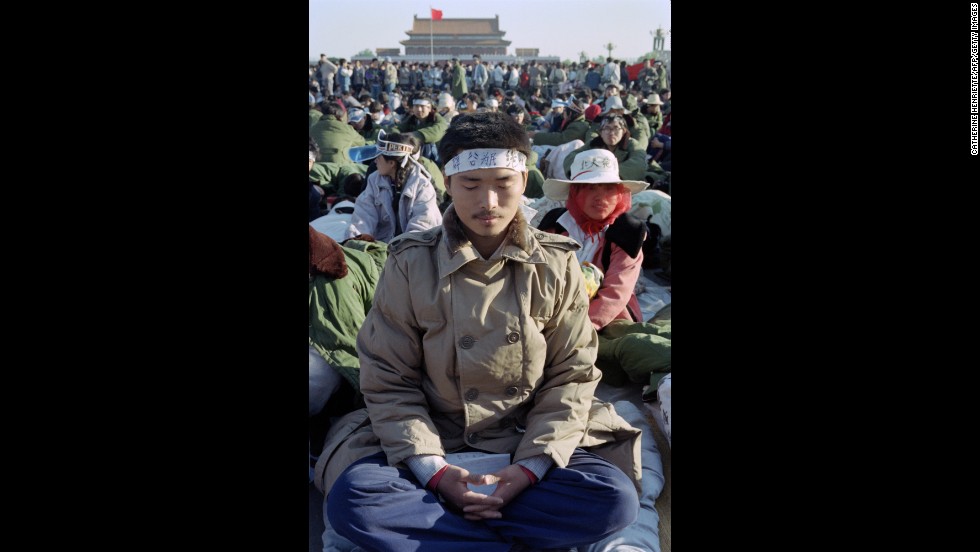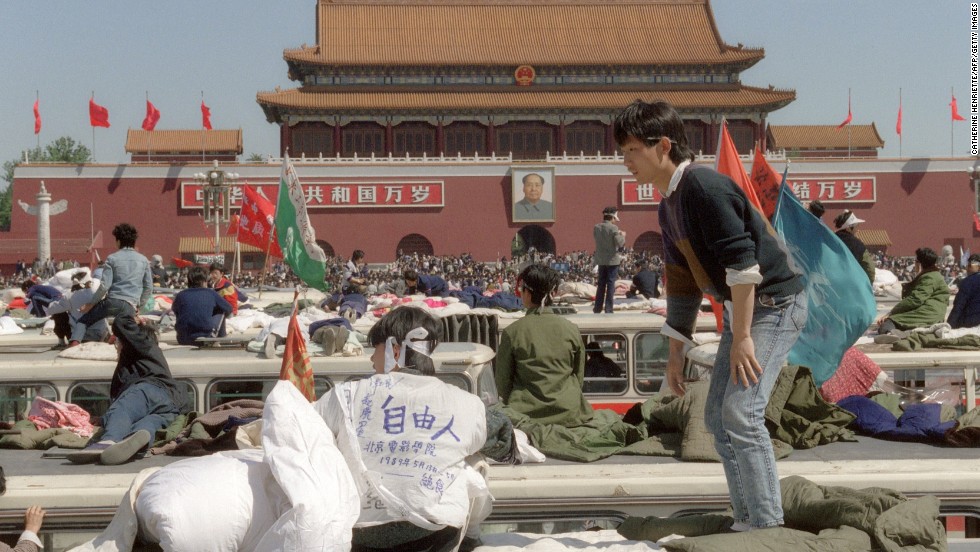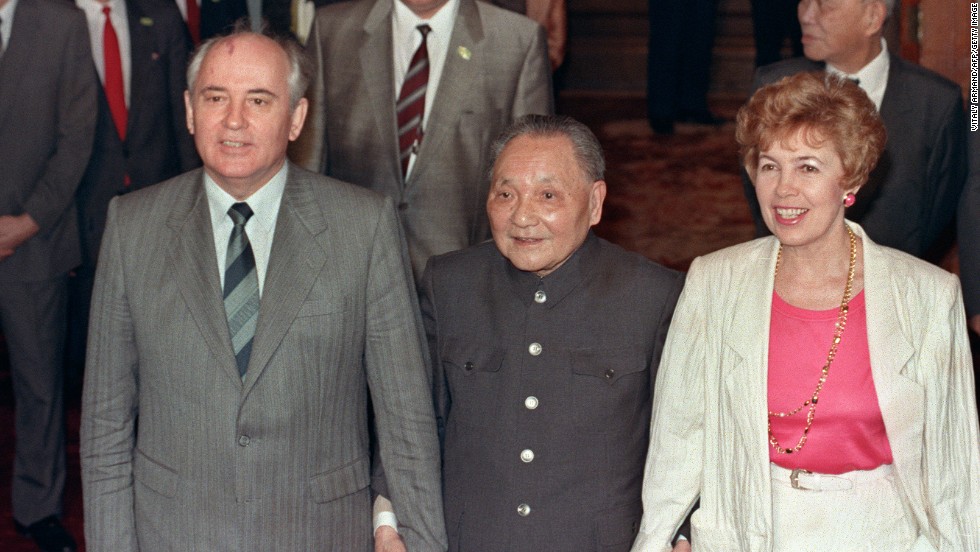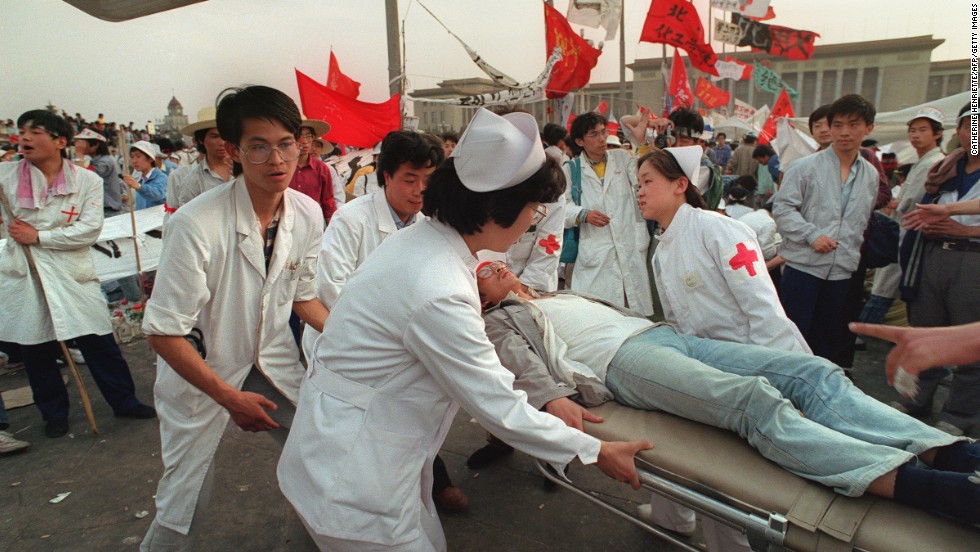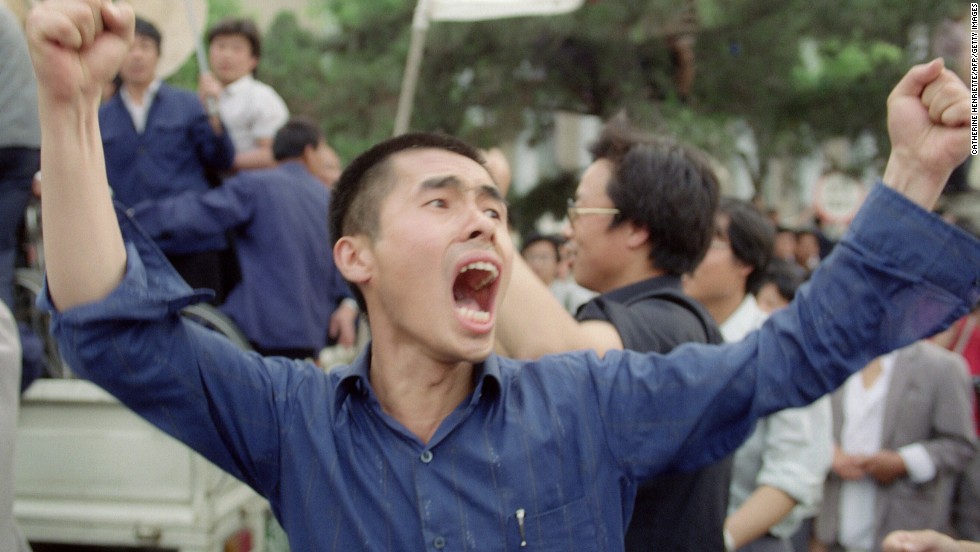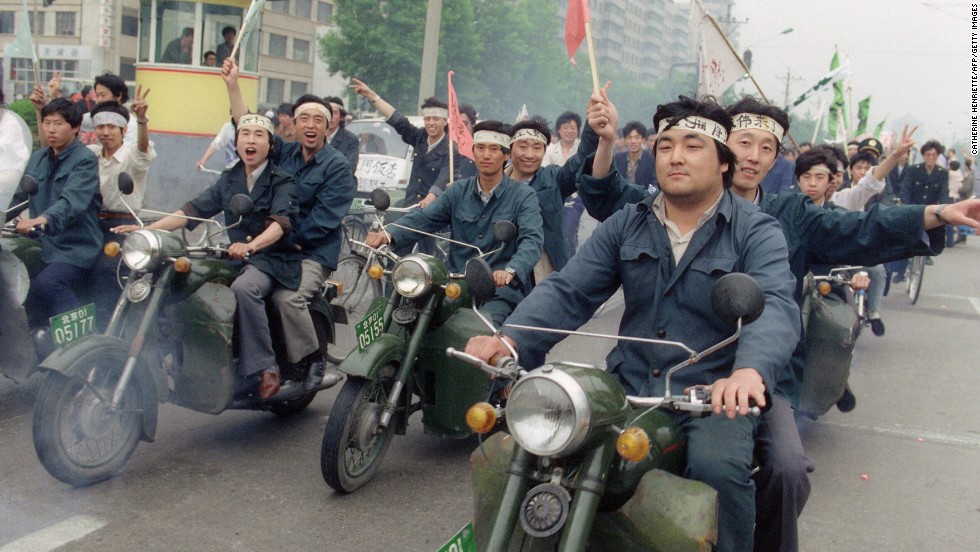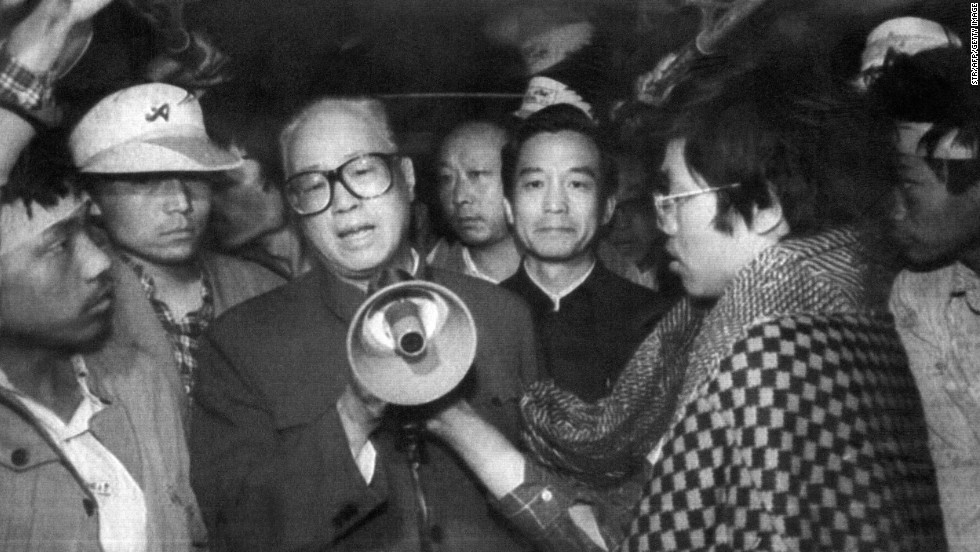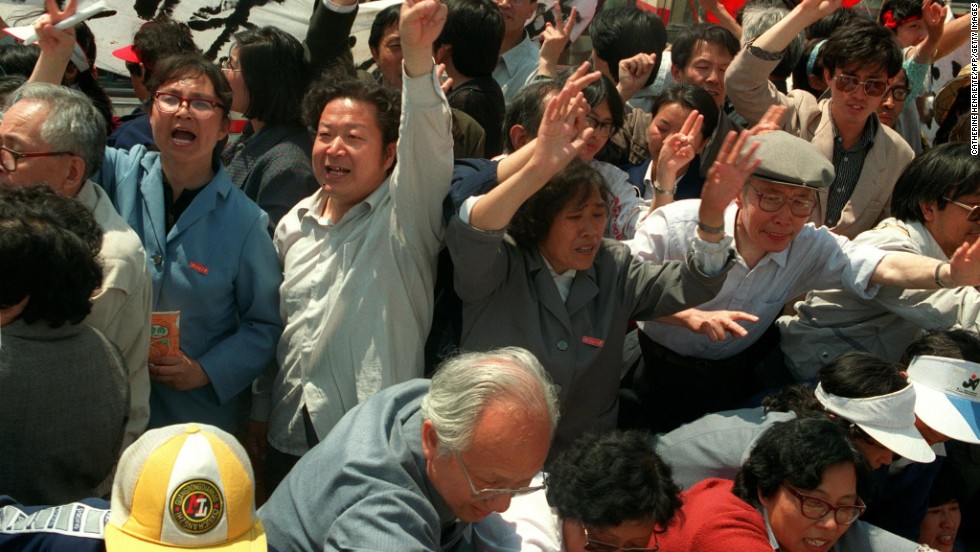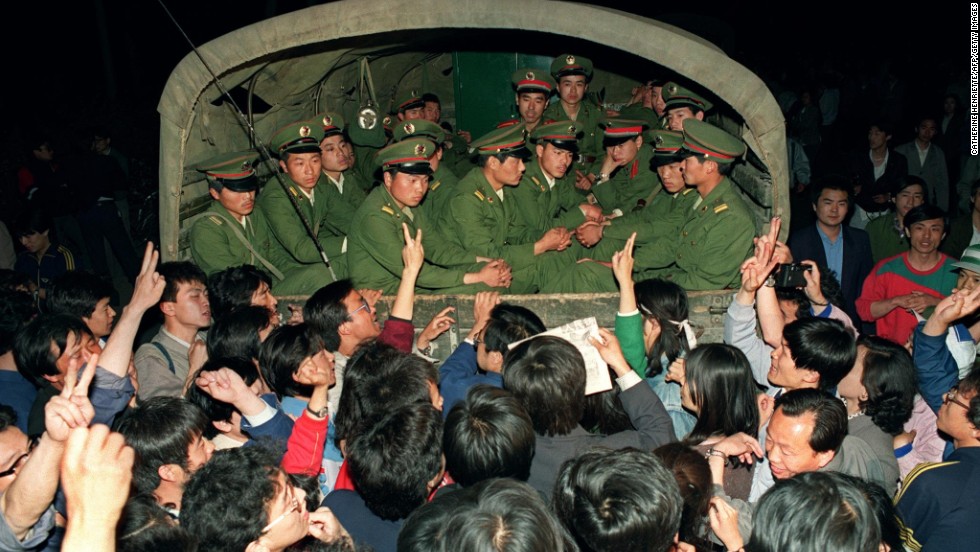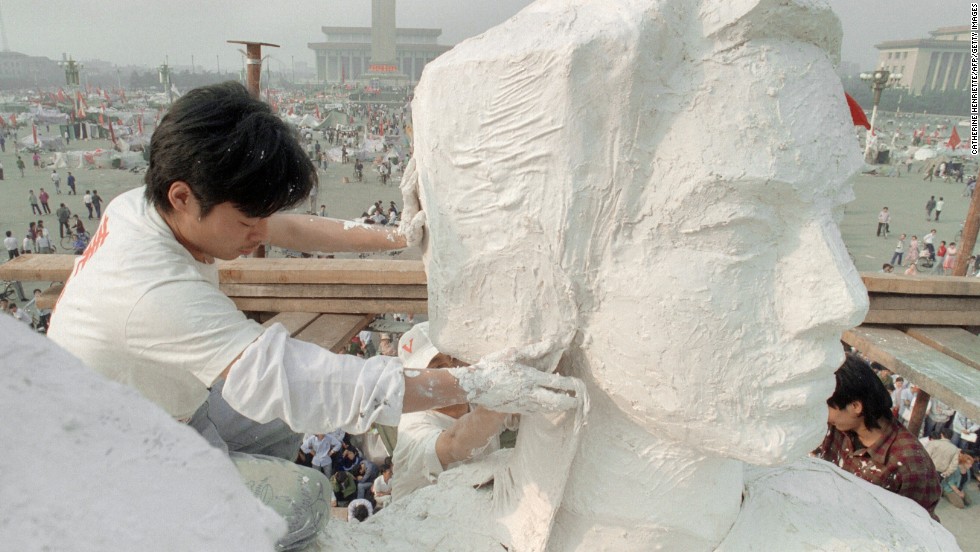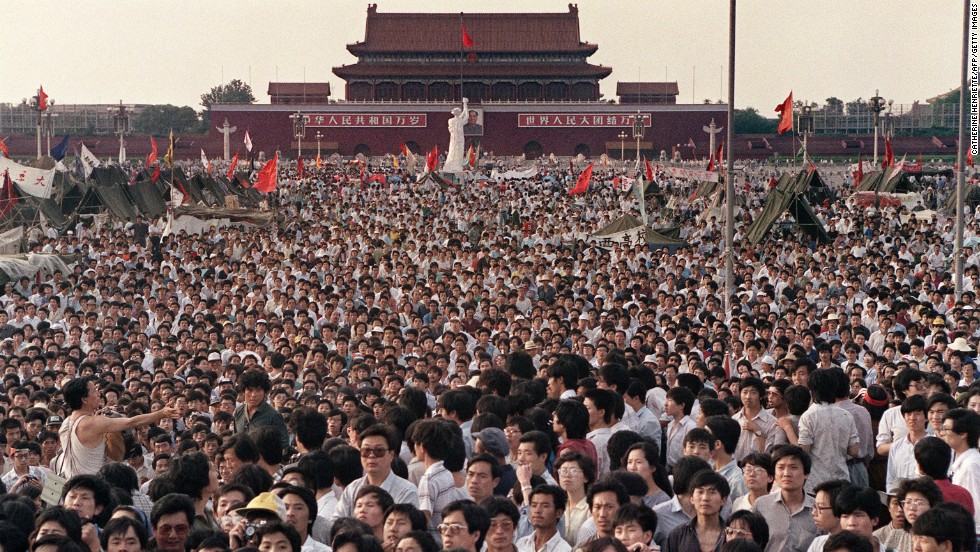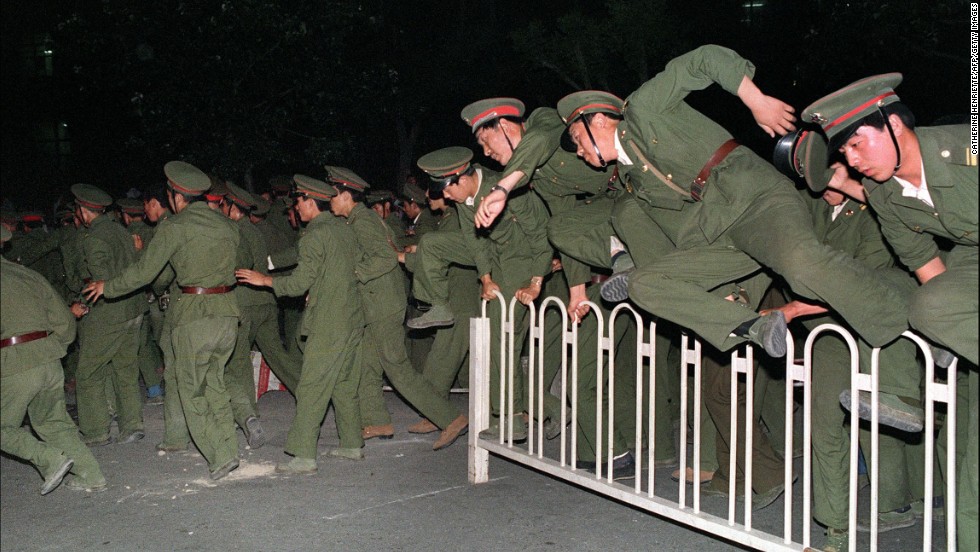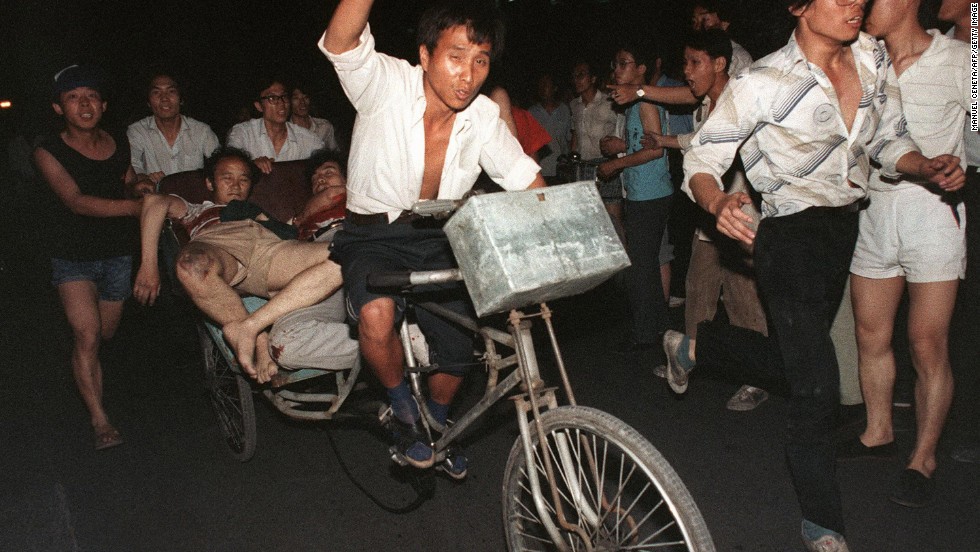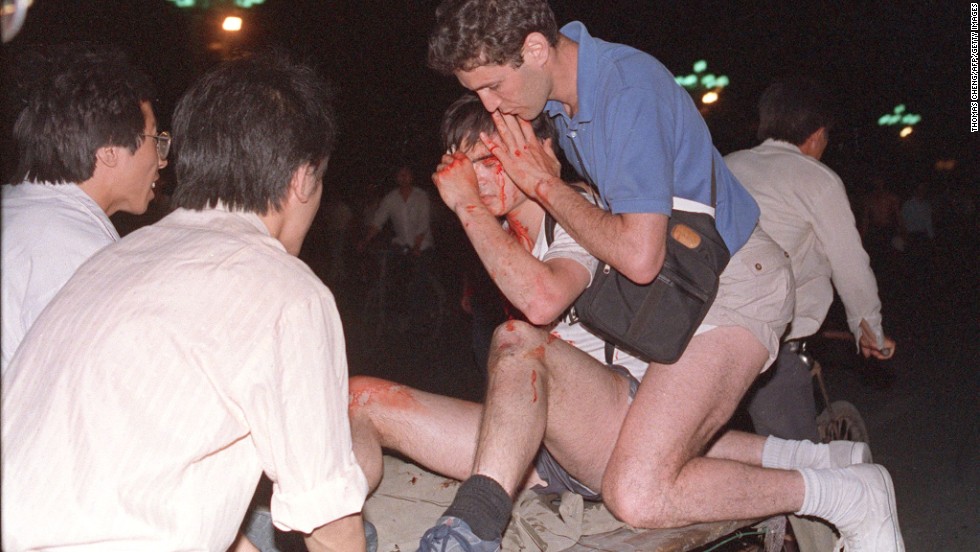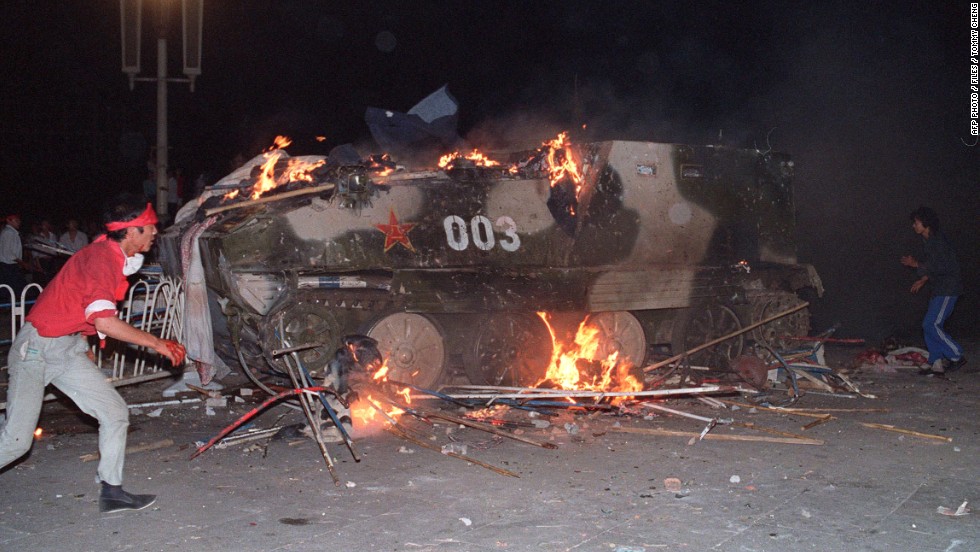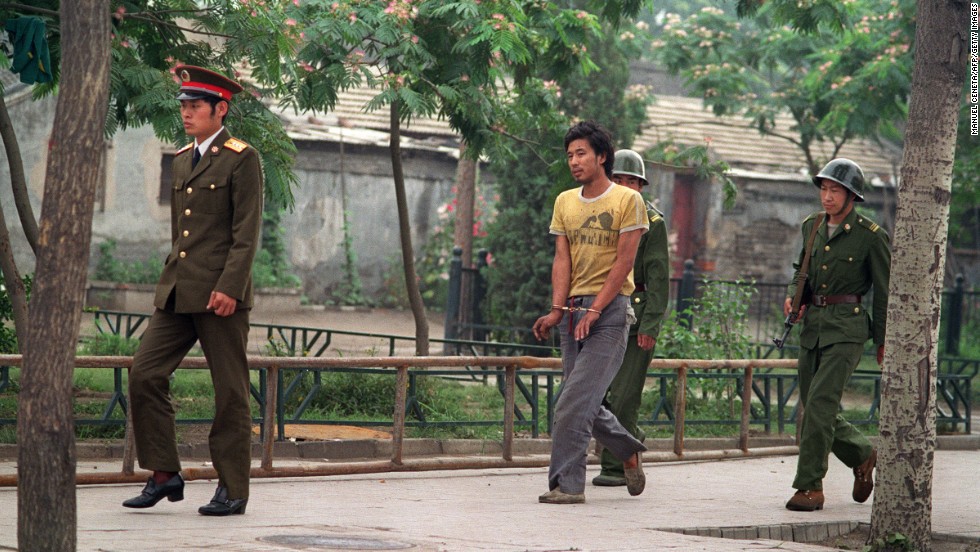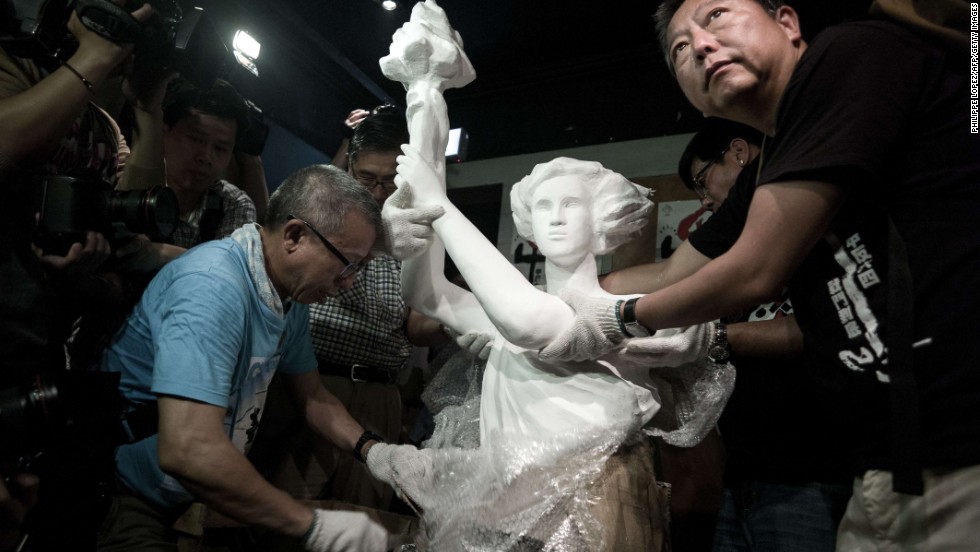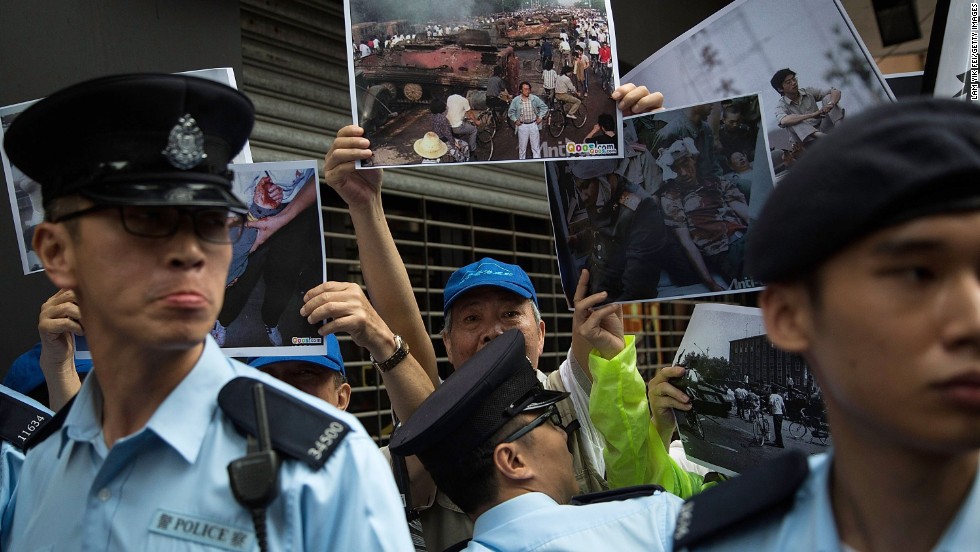(CNN)Here is some information about the events in Beijing's Tiananmen Square on June 3-4, 1989.
Facts
Tiananmen Square is located in the center of Beijing, the capital of China.
Tiananmen means "gate of heavenly peace."
In 1989, after several weeks of demonstrations, Chinese troops entered Tiananmen Square on June 4 and fired on civilians.
Estimates of the death toll range from several hundred to thousands.
It has been estimated that as many as 10,000 people were arrested during and after the protests.
Several dozen people have been executed for their parts in the demonstrations.
Timeline
April 15, 1989 - Hu Yaobang, a former Communist Party leader, dies. Hu had worked to move China toward a more open political system and had become a symbol of democratic reform.
April 18, 1989 - Thousands of mourning students march through the capital to Tiananmen Square, calling for a more democratic government. In the weeks that follow, thousands of people join the students in the square to protest against China's Communist rulers.
May 13, 1989 - More than 100 students begin a hunger strike in Tiananmen Square. The number increases to several thousand over the next few days.
May 19, 1989 - A rally at Tiananmen Square draws an estimated 1.2 million people. General Secretary of the Chinese Communist Party, Zhao Ziyang, appears at the rally and pleads for an end to the demonstrations.
May 19, 1989 - Premier Li Peng imposes martial law.
June 1, 1989 - China halts live American news telecasts in Beijing, including CNN. Reporters are prohibited from photographing or videotaping any of the demonstrations or Chinese troops.
June 2, 1989 - A reported 100,000 people attend a concert in Tiananmen Square by singer Hou Dejian, in support of the demonstrators.
June 4, 1989 - At about 1 a.m., Chinese troops reach Tiananmen Square. Throughout the day, Chinese troops fire on civilians and students, ending the demonstrations. An official death toll has never been released.
June 5, 1989 - An unidentified man stands alone in the street, blocking a column of Chinese tanks. He remains there for several minutes before being pulled away by onlookers.
June 5, 1999 - Approximately 70,000 people in Hong Kong take part in a memorial vigil.
June 1, 1999 - The National Security Archive publish "Tiananmen Square, 1989: The Declassified History." The archive includes US State Department documents related to the events that took place during the demonstrations.
January 2001 - Two Chinese scholars publish "The Tiananmen Papers" amid controversy. The papers are presented as a collection of internal government documents including transcriptions of notes, speeches, meeting minutes and eyewitness accounts of the historical disaster. The Chinese government call the papers fabricated material.
February 2006 - Former journalist Yu Dongyue is released from prison after serving 17 years. He was arrested during the Tiananmen Square protests for throwing paint at a portrait of Mao Zedong.
June 4, 2009 - Tens of thousands of people commemorate the 20th anniversary of Tiananmen Square at a gathering in Hong Kong. In Beijing, journalists are barred from the square while the government blocks foreign news sites and Twitter.
April 2011 - The National Museum of China in Tiananmen Square is newly renovated and open to the public. The building contains no exhibits mentioning the events of June 1989.
2012 - Wuer Kaixi, one of the organizers of the Tiananmen Square protest, attempts to return to China by turning himself over to the Chinese embassy in Washington, DC. The embassy does not answer the door.
June 3, 2015 - Twenty-six years after the uprising in Tiananmen Square, a State Department Spokesperson issues a statement calling for the release of those still serving "Tiananmen-related sentences."
October 15, 2016 - China is set to release Miao Deshun, the last known prisoner of the uprising, according to Dui Hua, a San Francisco-based human rights organization.
